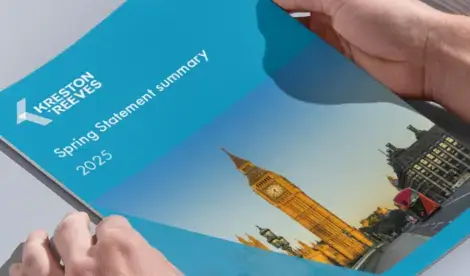Rupert Moyle BA (Hons)
- Partner and Head of VAT and Duty
- +44 (0)330 124 1399
- Email Rupert
Suggested:Result oneResult 2Result 3
Sorry, there are no results for this search.
Sorry, there are no results for this search.
View all peoplePublished by Rupert Moyle on 29 October 2018
Share this article
There were certainly a lot of tax announcements in the Autumn 2018 Budget, but not so much for VAT. The potential game changers expected by some failed to materialise.
The main concern had been for small businesses and charities. They feared that the VAT registration threshold of £85,000 might be significantly reduced, bringing it more in line with the EU average of £20,000. This would have been to remove what is seen as an artificial barrier to business growth. Instead the threshold has been frozen again, until 31 March 2022.
The lack of a big announcement is not surprising in my view, with the uncertainty of Brexit and the obligation under “Making Tax Digital” to file VAT returns via a digital link from April 2019 looming. The Chancellor may have decided that another significant amendment in VAT legislation would have been too much for businesses to bear at this time.
As ever though, there was some interest for certain business sectors.
For larger business, groups in fact, there will be a change to the law as part of the Finance Bill 2018/19 concerning VAT Groups, which is an ability for all members of a corporate Group to be treated as a single VAT registered entity. The change will allow certain non-corporate bodies to join a VAT Group. The regulations will also clarify rules on bought in services from non UK branches which will have effect from 1 April 2019.
Insurance intermediaries acting for non-EU insurers will also have to take note of a change. This is in their – rather unusual – ability to reclaim VAT on expenditure. Although insurance intermediary services are exempt from VAT which usually means no VAT on related costs can be reclaimed from HMRC, where the recipient belongs outside the EU VAT recovery is in fact allowed. Some businesses have, in HMRC’s eyes, abused that relief and so from 1 March 2019 HMRC continue their crack down on the insurance sector with a change which means that intermediaries will, rather than looking at its immediate customer to consider if it is outside the EU, have to consider where the ultimate customer receiving the insurance is based. Therefore there will only be an ability to reclaim VAT where the end customer is also outside the UK.
There was confirmation for the construction industry that the self accounting mechanism (reverse charge) for businesses receiving services from subcontractors, to combat fraud, will go ahead from 1 October 2019.
Retailers – those involved with vouchers for goods and services – will need to be aware of changes from 1 January 2019. Gift and e-vouchers (as examples) will simply be classed as single or multi-purpose vouchers. The former will mean that VAT will be due when the voucher is sold, if it is clear as to the purpose in terms of liability of the goods or services in question and in which country VAT will be due. For multi-purpose vouchers, VAT will be due when the voucher is redeemed as it will not be possible to determine what rate of VAT will apply as this will depend on the goods (or services) a customer chooses. This brings the UK’s rules into line with the EU, despite our impending exit.
The government has confirmed that it will amend rules from 1 March 2019 to bring consistency to the VAT treatment of prepayments. This change will bring all prepayments for goods and services into the scope of VAT where customers have failed to collect what they have paid for and have not received a refund.
New rules will be introduced for the adjustments to VAT following retrospective reductions in the price of goods or services.
Businesses will have to adjust their VAT returns within set time limits and send a credit note to their customers. This will ensure that such adjustments are only made in respect of genuine price reductions. The changes will be made by secondary legislation and will come into force in September 2019.
Finally, there was an announcement that applies to education sector. It was not one that some independent schools have been fretting about, i.e. charging VAT on school fees. That may well have been contrary to the exemption in EU law for education. Instead the announcement affects the Higher Education sector. Bodies that fall under the Higher Education and Research Act and that are registered with the Officer for Students in the Approved (fee cap) category will be able to exempt from VAT their supplies of education.
Share this article
This site is protected by reCAPTCHA and the Google Privacy Policy and Terms of Service apply.
Our complimentary newsletters and event invitations are designed to provide you with regular updates, insight and guidance.
You can unsubscribe from our email communications at any time by emailing [email protected] or by clicking the 'unsubscribe' link found on all our email newsletters and event invitations.
This site is protected by reCAPTCHA and the Google Privacy Policy and Terms of Service apply.




